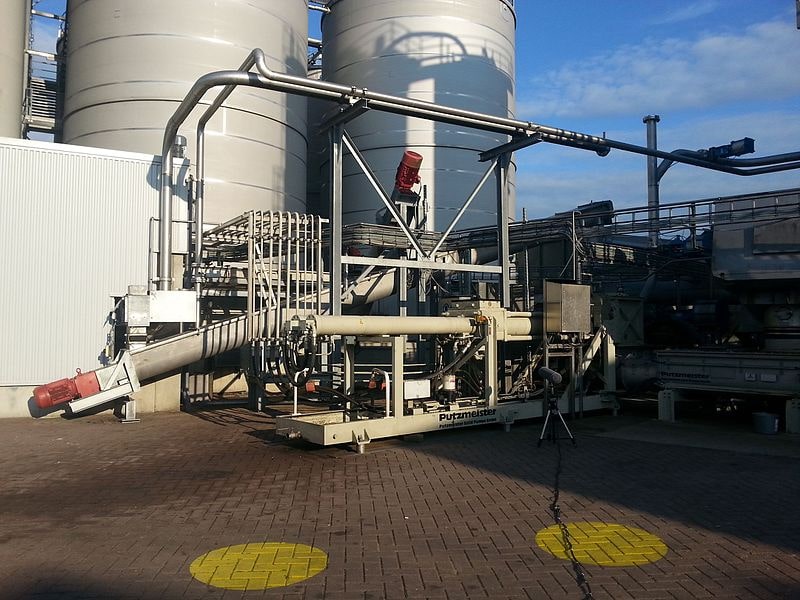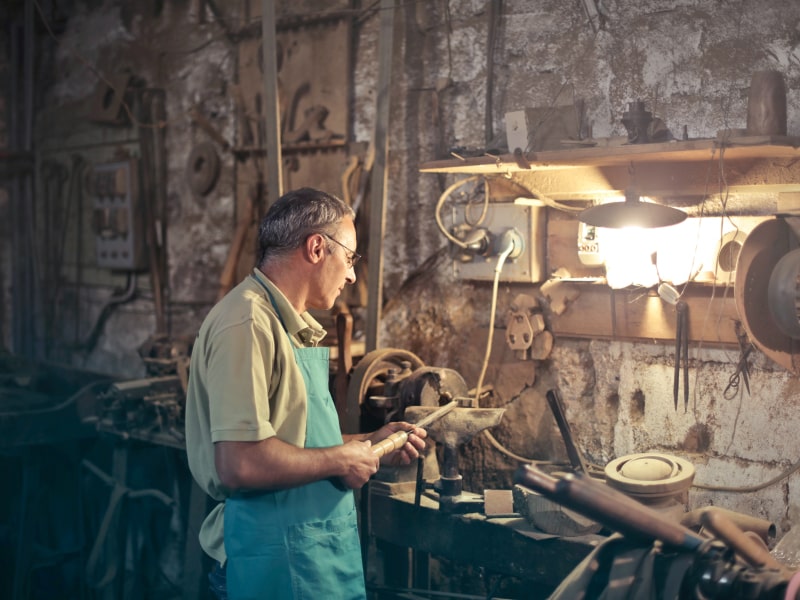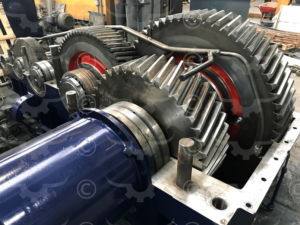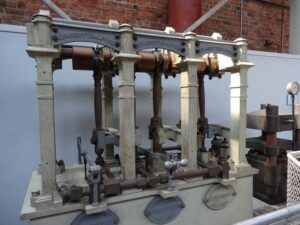Hydraulic pumps are the main driving component in any hydraulic system. They convert mechanical energy to fluid energy with great efficiency and precision.
These pumps also come in various types and designs to serve the needs of multiple industries worldwide.
But which are the most widely used hydraulic pump types, and what are their characteristics?
We’ll cover some hydraulic pump basics, 6 main hydraulic pump types, and a few essential pump repair tips.
Let’s go!
How Do Hydraulic Pumps Work?
The main purpose of hydraulic pumps is to create a steady fluid flow inside the hydraulic system. This happens through the mechanical energy produced by the pump, which:
- Creates a vacuum at the pump inlet. This enables the atmospheric pressure to force fluid from the reservoir to the pump.
- Delivers the fluid to the pump outlet. The fluid exits the pump outlet at a higher pressure and velocity (than at the inlet’s entry) and enters the hydraulic system.
H2: 6 Hydraulic Pump Types (Pros, Cons, Uses)
Here are 6 common hydraulic pump types, their pros, cons, and applications:
Gear Pump
There are two main hydraulic gear pump types – external (with externally arranged gears) and internal (with internally arranged gears). These pumps are widely used in different consumer, commercial, and industrial operations.
They offer the following advantages:
- Easy to maintain
- Inexpensive
- Fixed (positive displacement) design
However, their disadvantages are:
- Low efficiency
- Fixed flow rate
- Requiring precise machining
Vane Pump
This type of electric hydraulic pump has a set of vanes mounted onto a rotor. The rotor is powered by an electric current and rotates the vanes, creating a pressurized flow. Vane pumps are most commonly used in machining tool operations.
Their advantages are:
- Reduced noise while maintaining high speed
- Available in both variable and fixed displacement
- Suitable for low viscosity fluids
Their disadvantages include:
- More complex design
- Not suitable for high viscosity fluids
- Cannot maintain high-pressure operations
Dump Pump
This type of pump is commonly used in dump trucks and trailers. Dump pumps are usually directly mounted to a PTO hydraulic pumps system.
Their main advantages are:
- Built-in pressure relief construction
- Available in two- and three-line installations
The disadvantages include:
- Not suitable for continuous applications
- Prone to excessive heat generation
Screw Pump
Screw pumps have two screws that intermesh in the pump chamber. The fluid passes through the chamber in a linear direction. This pump type is widely used in the chemical and petrochemical industries.
Its main advantages are:
- Low noise levels
- Constant flow rates
The disadvantages are:
- Low efficiency
- Higher installation costs
Hydraulic Piston Pump

This type of electric hydraulic pump has a cylinder block with pistons inside the pump housing. The pistons’ movement maintains the fluid flow under high pressure.
Such pumps are often used in truck-mounted cranes and ice and snow control systems.
Their advantages include:
- Ability to operate under very high pressure
- High efficiency
- Available in fixed and variable displacements
But you should also consider the following disadvantages:
- High initial cost
- More complex design
- Low resistance to contamination
Clutch Pumps
These are small belt-driven pumps commonly used for low-force applications like aerial bucket trucks, hay spikes, and auto wreckers.
Its main pro is the compact size, but, on the downside, this limits its operation rate to below 15 GPM.
How to Choose a Hydraulic Pump?
When choosing a hydraulic pump type for your industrial operations, you should consider the pump’s intended use. Also, think about whether you need a pump that performs only one specific function or a pump with greater flexibility.
Other factors you should take into consideration are:
- Material: When choosing the material of your pump, consider what fluids it will operate with. Most pumps are made of stainless steel, aluminum, and other resistant materials.
- Operating abilities: Since pumps usually have to take on heavy workloads, you should check the following pump specifications to ensure the unit will endure its everyday operation requirements:
- Operating speed
- Operating pressure
- Maximum fluid flow
- Horsepower
- Power source
- Pump weight
- Other vital pump measurements (length, diameter, rod extension)
No matter the pump type, you should be aware of a few common pump issues so you can detect and eliminate the problem as early as possible. Let’s take a look.
Common Hydraulic Pump Issues & How to Fix Them
If your pump is slow, overheating, or unusually noisy, you might want to check the following:
- Cavitation: This happens when small air bubbles form in the hydraulic fluid. You might notice that the pump is louder and operates at higher temperatures. This can lead to the breakage of various components and even destroy your pump entirely. To avoid cavitation, ensure the system is airtight, and the filters are cleaned regularly.
- Fluid leak: Leakages are one of the most common pump issues. If the leakage is somewhere visible (hoses, bearings, etc.), you can quickly detect and eliminate the issue. Other signs of leakage are low fluid levels and unusually low performance.
- High operating temperatures: High temperature might indicate an improper heat load, a fluid with critically low viscosity, or cavitation.
- Internal components failure: When internal components fail, you might notice the pump is not operating at high efficiency or is too noisy. Identifying which part exactly is causing the issue can help you find the root problem. For example, a rusted component could be a sign of leakage into the system.
- Wear: Some common signs of wear are unusually loud noise during operation, loosened bearings and other external components, and lower performance. To avoid this, you must do regular maintenance checks of your pump. However, if your pump is showing serious signs of wear, it’s best to contact a professional so they can give you an accurate diagnosis and advice.

To assess the damage better, make sure to check if:
- There are any cavitation signs
- There’s any visible fluid leakage
- The sound of the pump during operation is louder or unusual. If yes, try to identify where this sound comes from.
- The fluid levels, viscosity, and color are not right
- All the hose connections, bearings, and screws are connected tightly
Leave the Hydraulic Pump Repair to the Professionals
No matter the pump type, it’s crucial to do regular maintenance checks of all your pump systems to ensure their health and optimal performance.
But when it comes to identifying the root cause of a more serious problem, things can get tricky. One problem might have a few possible underlying reasons, and it could be hard to pinpoint exactly why your equipment is failing.
That’s why it’s always best to consult with a certified industrial pump repair professional. At Houston Pump and Gear, we offer various hydraulic pump repair services, including reverse engineering, pump overhaul, and mechanical seal repair for all pump types.




